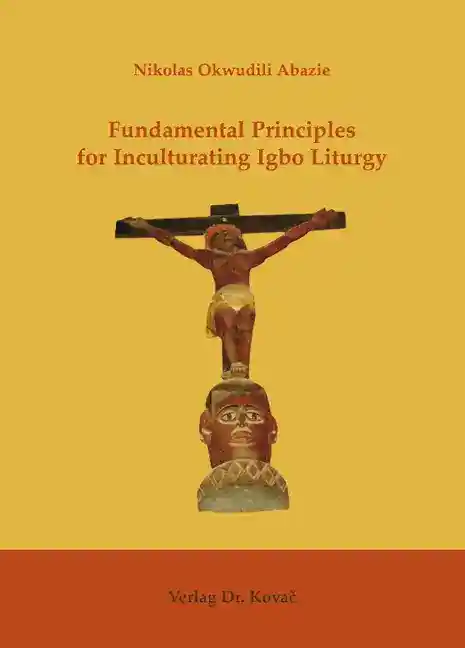Nikolas Okwudili AbazieFundamental Principles for Inculturating Igbo Liturgy
THEOS – Studienreihe Theologische Forschungsergebnisse, Band 87
Hamburg 2009, 336 Seiten
ISBN 978-3-8300-4221-1 (Print) |ISBN 978-3-339-04221-7 (eBook)
Rezension
[...] verdient die Studie Beachtung. Für die Liturgiewissenschaft ist sie ein Ansporn, das vom 2. Vatik. Konzil skizzierte Inkulturationspotenzial der Liturgie weiter zu entwickeln und dabei die internationale Perspektive stärker zu berücksichtigen.
Zum Inhalt
The book has three main parts and nine chapters: theological basis for inculturation, ethnology of the Igbo and inculturation principles.
Theological Basis for Inculturation
Whenever and where ever the Church gathers in prayer or liturgical celebrations, she lives out what she believes, she celebrates in form and word the Incarnate Word, who revealed to humanity the „God-liness of man?- we are „co-heirs? to the kingdom with Christ. The in-time coming of Christ, his birth into a culture, his life and work only within this culture, his adherence to the genuine elements of this culture, were all acts of inculturation. Christ’s miracles especially, and his eventual death were acts ad nos. They were acts of solidarity with the suffering human person. They met the human person in his situation.
This saving act is still on-going in the sacraments and liturgical acts of the Church. In signs, word and symbolic expressions, the Church makes intelligible the deep saving mysteries of her faith. That this intelligibility be guaranteed in every culture, people and time, elements of that culture must apply in the liturgical celebrations. This is inculturation. Inculturation is possible because Christ’s incarnation itself forms the basis.
Ethnology of the Igbo
Since inculturation is giving and taking and not a syncretistic cutting and joining; since it must be an on-going process of adapting, adjusting and responding to the situation of the human person, an inculturation of Igbo liturgical celebration must try to highlight the Igbo people, who they are, what they do, how they live. This study has noted among other things the Igbo docility to change. The Igbo are found almost everywhere in the world and adapt with ease to their new environment. They are clever, industrious and religious but are also very assuming. Some of these qualities made the spread of the Gospel among them very rapid. But the celebrated faith is still much western and alien. Today, the Igbo find themselves at crossroads- not truly Igbo and not truly European. The menaces of poverty and wonder-promising evangelical churches compound an existing problem. Hence, the need for a liturgy that is deep, intelligible and saving. To arrive at it a scientific approach is required.
Principles for Inculturation
The analysis of the preceding parts would give rise to enunciating principles that must have to be applied should any meaningful Igbo liturgical inculturation take place. They are: the Principle of Reciprocity, the Principle of Proximity and the Principle of Equality. These principles could apply in other cultures but they were arrived at considering the nature and situation of the Igbo people of Nigeria.
Ihr Werk im Verlag Dr. Kovač

Möchten Sie Ihre wissenschaftliche Arbeit publizieren? Erfahren Sie mehr über unsere günstigen Konditionen und unseren Service für Autorinnen und Autoren.
